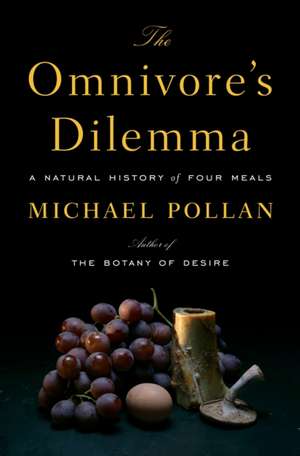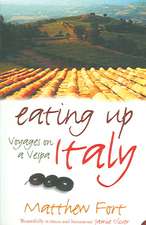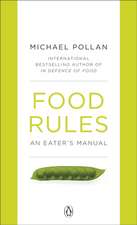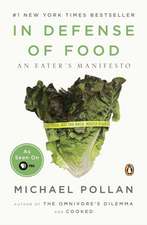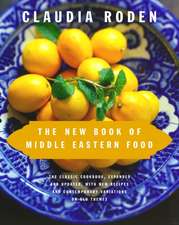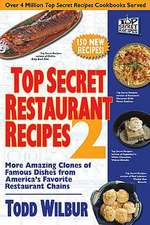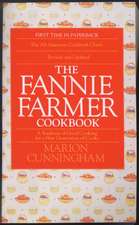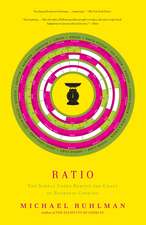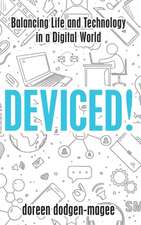The Omnivore's Dilemma: A Natural History of Four Meals
Autor Michael Pollanen Limba Engleză Hardback – 30 apr 2006 – vârsta de la 18 ani
Vezi toate premiile Carte premiată
Make this your next book club selection and everyone saves.
Get 15% off when you order 5 or more of this title for your book club.
Simply enter the coupon code POLLANOMNIVORE at checkout.
This offer does not apply to eBook purchases. This offer applies to only one downloadable audio per purchase.
What should we have for dinner?" To one degree or another this simple question assails any creature faced with a wide choice of things to eat. Anthropologists call it the omnivore's dilemma. Choosing from among the countless potential foods nature offers, humans have had to learn what is safe, and what isn't—which mushrooms should be avoided, for example, and which berries we can enjoy. Today, as America confronts what can only be described as a national eating disorder, the omnivore's dilemma has returned with an atavistic vengeance. The cornucopia of the modern American supermarket and fast-food outlet has thrown us back on a bewildering landscape where we once again have to worry about which of those tasty-looking morsels might kill us. At the same time we're realizing that our food choices also have profound implications for the health of our environment. The Omnivore's Dilemma is bestselling author Michael Pollan's brilliant and eye-opening exploration of these little-known but vitally important dimensions of eating in America.
Pollan has divided The Omnivore's Dilemma into three parts, one for each of the food chains that sustain us: industrialized food, alternative or "organic" food, and food people obtain by dint of their own hunting, gathering, or gardening. Pollan follows each food chain literally from the ground up to the table, emphasizing our dynamic coevolutionary relationship with the species we depend on. He concludes each section by sitting down to a meal—at McDonald's, at home with his family sharing a dinner from Whole Foods, and in a revolutionary "beyond organic" farm in Virginia. For each meal he traces the provenance of everything consumed, revealing the hidden components we unwittingly ingest and explaining how our taste for particular foods reflects our environmental and biological inheritance.
We are indeed what we eat-and what we eat remakes the world. A society of voracious and increasingly confused omnivores, we are just beginning to recognize the profound consequences of the simplest everyday food choices, both for ourselves and for the natural world. The Omnivore's Dilemma is a long-overdue book and one that will become known for bringing a completely fresh perspective to a question as ordinary and yet momentous as What shall we have for dinner?
A few facts and figures from The Omnivore's Dilemma:
Get 15% off when you order 5 or more of this title for your book club.
Simply enter the coupon code POLLANOMNIVORE at checkout.
This offer does not apply to eBook purchases. This offer applies to only one downloadable audio per purchase.
What should we have for dinner?" To one degree or another this simple question assails any creature faced with a wide choice of things to eat. Anthropologists call it the omnivore's dilemma. Choosing from among the countless potential foods nature offers, humans have had to learn what is safe, and what isn't—which mushrooms should be avoided, for example, and which berries we can enjoy. Today, as America confronts what can only be described as a national eating disorder, the omnivore's dilemma has returned with an atavistic vengeance. The cornucopia of the modern American supermarket and fast-food outlet has thrown us back on a bewildering landscape where we once again have to worry about which of those tasty-looking morsels might kill us. At the same time we're realizing that our food choices also have profound implications for the health of our environment. The Omnivore's Dilemma is bestselling author Michael Pollan's brilliant and eye-opening exploration of these little-known but vitally important dimensions of eating in America.
Pollan has divided The Omnivore's Dilemma into three parts, one for each of the food chains that sustain us: industrialized food, alternative or "organic" food, and food people obtain by dint of their own hunting, gathering, or gardening. Pollan follows each food chain literally from the ground up to the table, emphasizing our dynamic coevolutionary relationship with the species we depend on. He concludes each section by sitting down to a meal—at McDonald's, at home with his family sharing a dinner from Whole Foods, and in a revolutionary "beyond organic" farm in Virginia. For each meal he traces the provenance of everything consumed, revealing the hidden components we unwittingly ingest and explaining how our taste for particular foods reflects our environmental and biological inheritance.
We are indeed what we eat-and what we eat remakes the world. A society of voracious and increasingly confused omnivores, we are just beginning to recognize the profound consequences of the simplest everyday food choices, both for ourselves and for the natural world. The Omnivore's Dilemma is a long-overdue book and one that will become known for bringing a completely fresh perspective to a question as ordinary and yet momentous as What shall we have for dinner?
A few facts and figures from The Omnivore's Dilemma:
- Of the 38 ingredients it takes to make a McNugget, there are at least 13 that are derived from corn. 45 different menu items at Mcdonald’s are made from corn.
- One in every three American children eats fast food every day.
- One in every five American meals today is eaten in the car.
- The food industry burns nearly a fifth of all the petroleum consumed in the United States—more than we burn with our cars and more than any other industry consumes.
- It takes ten calories of fossil fuel energy to deliver one calorie of food energy to an American plate.
- A single strawberry contains about five calories. To get that strawberry from a field in California to a plate on the east coast requires 435 calories of energy.
- Industrial fertilizer and industrial pesticides both owe their existence to the conversion of the World War II munitions industry to civilian uses—nerve gases became pesticides, and ammonium nitrate explosives became nitrogen fertilizers.
- ...
| Toate formatele și edițiile | Preț | Express |
|---|---|---|
| Paperback (3) | 72.43 lei 3-5 săpt. | +35.96 lei 4-10 zile |
| Bloomsbury Publishing – 16 ian 2011 | 72.43 lei 3-5 săpt. | +35.96 lei 4-10 zile |
| Penguin Books – 31 aug 2007 | 108.68 lei 3-5 săpt. | +18.21 lei 4-10 zile |
| Large Print Press – 31 mar 2007 | 127.00 lei 3-5 săpt. | |
| Hardback (1) | 165.82 lei 3-5 săpt. | |
| Penguin Press – 30 apr 2006 | 165.82 lei 3-5 săpt. |
Preț: 165.82 lei
Nou
Puncte Express: 249
Preț estimativ în valută:
31.73€ • 33.01$ • 26.20£
31.73€ • 33.01$ • 26.20£
Carte disponibilă
Livrare economică 24 martie-07 aprilie
Preluare comenzi: 021 569.72.76
Specificații
ISBN-13: 9781594200823
ISBN-10: 1594200823
Pagini: 450
Dimensiuni: 163 x 239 x 38 mm
Greutate: 0.73 kg
Editura: Penguin Press
ISBN-10: 1594200823
Pagini: 450
Dimensiuni: 163 x 239 x 38 mm
Greutate: 0.73 kg
Editura: Penguin Press
Cuprins
Introduction: Our National Eating Disorder
I Industrial
Corn
One: The Plant: Corn's Conquest
Two: The Farm
Three: The Elevator
Four: The Feedlot: Making Meat
Five: The Processing Plant: Making COmplex Foods
Six: The Consumer: A Republic of Fat
Seven: The Meal: Fast Food
II Pastoral
Grass
Eight: All Flesh is Grass
Nine: Big Organic
Ten: Grass: Thirteen Ways of Looking at a Pasture
Eleven: The Animals: Practicing Complexity'
Twelve: Slaughter: In a Glass Abattoir
Thirteen: The Market: "Greetings from the Non-Barcode People"
Fourteen: The Meal: Grass-Fed
III Personal
The Forest: (Hunting and Catering)
Fifteen: The Forager
Sixteen: The Omnivore's Dilemma
Seventeen: The Ethics of Eating Animals
Eighteen: Hunting: The Meat
Nineteen: Gathering: The Fungi
Twenty: The Perfect Meal
Acknowledgments
Sources
Index
I Industrial
Corn
One: The Plant: Corn's Conquest
Two: The Farm
Three: The Elevator
Four: The Feedlot: Making Meat
Five: The Processing Plant: Making COmplex Foods
Six: The Consumer: A Republic of Fat
Seven: The Meal: Fast Food
II Pastoral
Grass
Eight: All Flesh is Grass
Nine: Big Organic
Ten: Grass: Thirteen Ways of Looking at a Pasture
Eleven: The Animals: Practicing Complexity'
Twelve: Slaughter: In a Glass Abattoir
Thirteen: The Market: "Greetings from the Non-Barcode People"
Fourteen: The Meal: Grass-Fed
III Personal
The Forest: (Hunting and Catering)
Fifteen: The Forager
Sixteen: The Omnivore's Dilemma
Seventeen: The Ethics of Eating Animals
Eighteen: Hunting: The Meat
Nineteen: Gathering: The Fungi
Twenty: The Perfect Meal
Acknowledgments
Sources
Index
Recenzii
"'When you can eat just about anything nature has to offer, deciding what you should eat will inevitably stir anxiety,' Pollan writes in this supple and probing book. He gracefully navigates within these anxieties as he traces the origins of four meals—from a fast-food dinner to a "hunter-gatherer" feast—and makes us see, with remarkable clarity, exactly how what we eat affects both our bodies and the planet. Pollan is the perfect tour guide: his prose is incisive and alive, and pointed without being tendentious. In an uncommonly good year for American food writing, this is a book that stands out." —from The New York Times Book Review's “10 Best Books of 2006”
Notă biografică
Michael Pollan is the author of five books: Second Nature, A Place of My Own, The Botany of Desire, which received the Borders Original Voices Award for the best nonfiction work of 2001 and was recognized as a best book of the year by the American Booksellers Association and Amazon, and the national bestellers, The Omnivore's Dilemma, and In Defense of Food.
A longtime contributing writer to The New York Times Magazine, Pollan is also the Knight Professor of Journalism at UC Berkeley. His writing on food and agriculture has won numerous awards, including the Reuters/World Conservation Union Global Award in Environmental Journalism, the James Beard Award, and the Genesis Award from the American Humane Association.
A longtime contributing writer to The New York Times Magazine, Pollan is also the Knight Professor of Journalism at UC Berkeley. His writing on food and agriculture has won numerous awards, including the Reuters/World Conservation Union Global Award in Environmental Journalism, the James Beard Award, and the Genesis Award from the American Humane Association.
Descriere
Pollan writes about the ecology of the food humans eat and why--what it is, in fact, that we are eating. Discussing industrial farming, organic food, and what it is like to hunt and gather food, this is a surprisingly honest and self-aware account of the evolution of the modern diet.
Caracteristici
The Omnivore's Dilemma has been shortlisted for the Andre Simon Memorial award 2006.
Premii
- National Book Critics Circle Award Finalist, 2006
- James Beard Foundation Book Awards Winner, 2007
